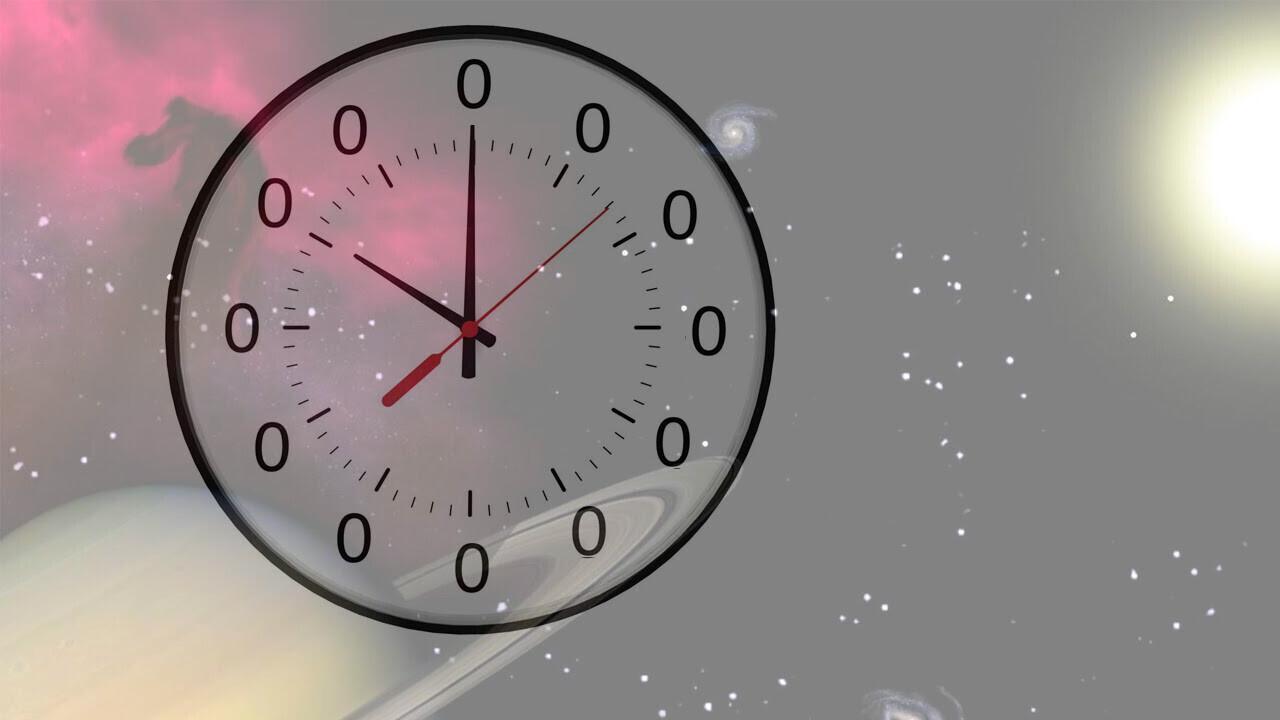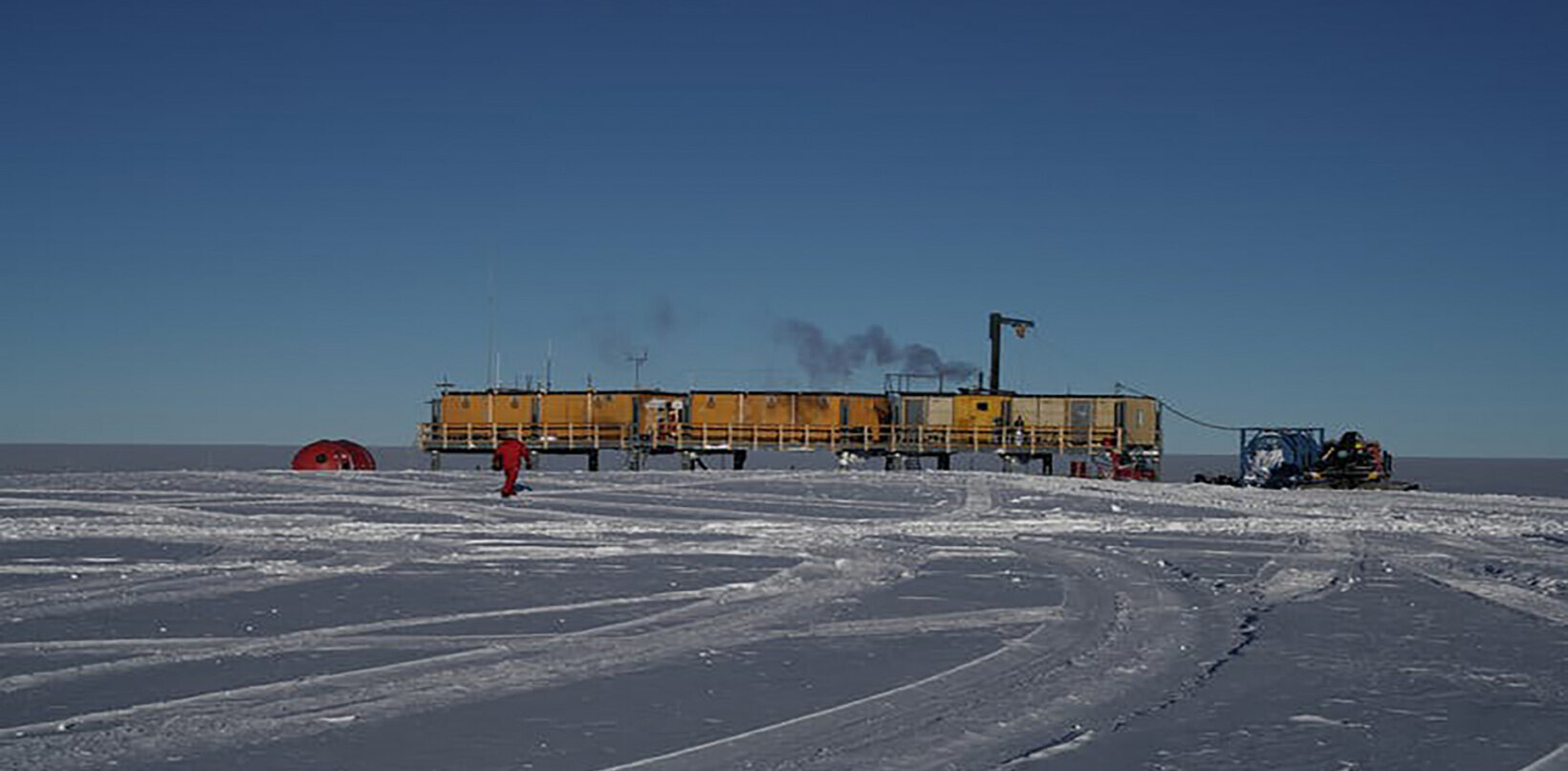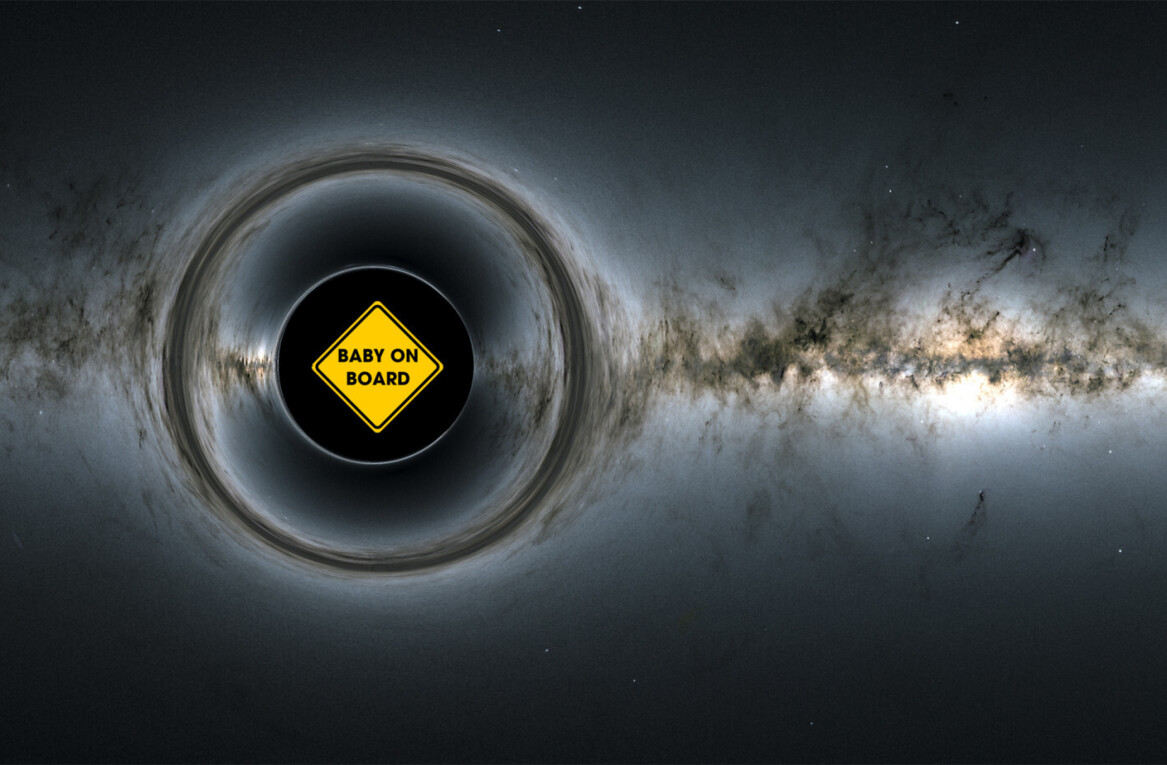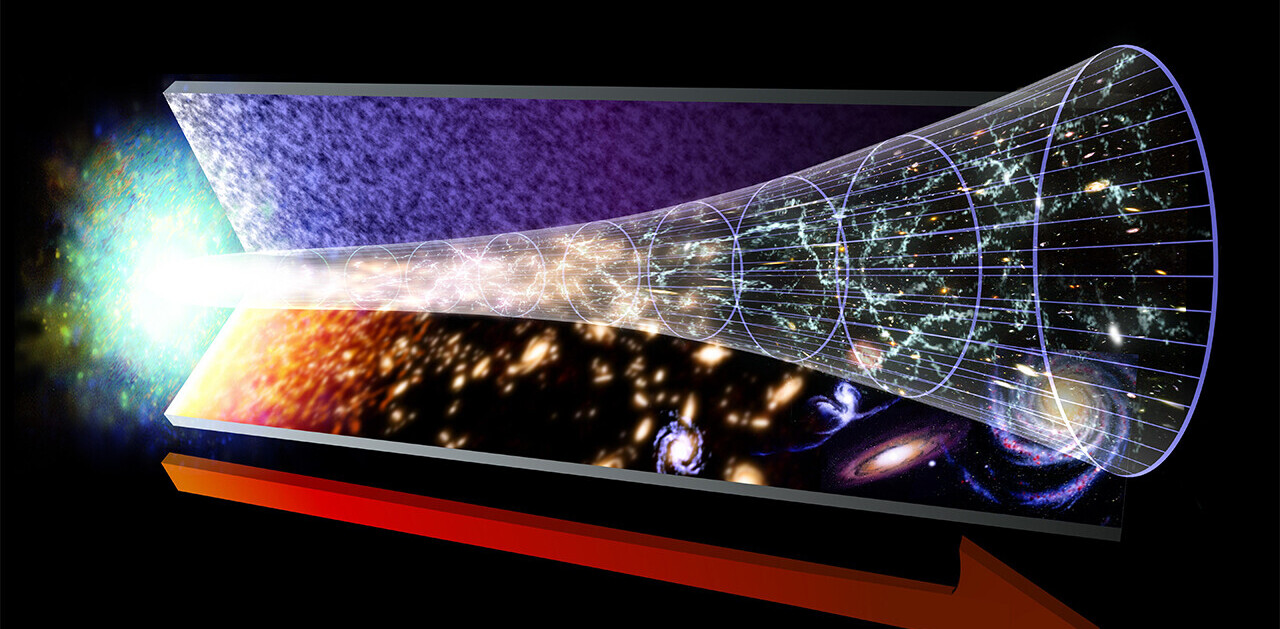
A pair of scientists from the UK recently published a pre-print research paper discussing the theory of a universe with no beginning.
Imagine it: our universe has always existed. The Big Bang either never happened or it was simply another event in the infinite history of… itself.
On the surface it sounds counter-intuitive. According to the researchers, a quantum physics paradigm called a “causal set” structure makes it possible for the universe to exist beyond its perceived origin.
Per the duo’s paper:
Did time ever begin? It is hard to decide which answer is more unsettling: the idea of an infinite past with no beginning or the concept of such a beginning—the birth of the Universe.
Stephen Hawking proved that General Relativity (GR) breaks down at a Big Bang singularity, but left open the possibility that the Big Bang is not the beginning of time but rather that it was preceded by a quantum gravity era which cannot be captured by GR.
The question of the beginning of time must therefore be addressed within a theory of quantum gravity.
So what is quantum gravity and what does it have to do with time travel?
Well, the answer to the second question is: everything. But the first question’s a bit more complicated.
Quantum gravity, at its most basic, is what scientists think occurs when classical physics become mathematically nonsensical around quantum phenomena such as black holes.
Time travel
The only surefire way to travel through time is to move through space at near light speed. Theoretically speaking, a person traveling at such a speed would physically experience time at a slower rate than someone standing still on a planetary body. The same would ring true for someone caught in the quantum gravity of a black hole.
However, all three persons would observe time at the “normal” rate. If you were on a spaceship traveling at light speed your watch would still appear to be ticking off seconds normally.
Obviously this doesn’t help us much if we want to go back in time and invest in Microsoft or flash forward a hundred years to see what Grand Theft Auto 8 is like.
But that might be the best we can muster. If the universe has no beginning, it’s conceivable that time travel isn’t possible because time and space are essentially the same thing.
Stopping time
Let’s break down time into some easy-to-chew concepts. What if we could stop time? What would that mean?
We’ll almost certainly never know. Time, as a measurement, effects all things. The reason you’re capable of having a glass of water with ice in it is because molecules move at different speeds during different phases. When heat is applied to a substance its molecules move faster. And you can’t measure speed without time.
So, if you pushed a big red button that said “STOP TIME,” you’d probably die instantly because your brain, heart, and lungs all rely on the motion of molecules.
Even if you were immune to the time-stoppage effects, you wouldn’t be able to move through the air molecules because they’d be stuck. Anyone who’s ever had an umbrella yanked out of their hands by a gust of wind knows that air has mass.
Neither classical nor quantum physics appear to provide a viable scientific path towards external time management. Stopping time like a supervillain or moving through it like Doctor Who or Marty McFly remains solely in the realm of science fiction.
But time is its own dimension, right?
Where things start to get interesting is when you stop playing by the rules of classical physics and instead use quantum mechanics.
If the universe has no beginning, as the UK researchers posit, then it follows that beginnings and endings are purely relative. We can’t imagine time as a line or circle with an arrow indicating passage anymore.
We’re forced to view time as something inextricable from space. In other words: space and time aren’t separate concepts. They combine to make up the individual, discrete units which make up the bedrock of our universe.
This may sound counter-intuitive. But, if you think about it, you can’t hand someone an inch or a minute. You can take a minute to go grab an inch of red fabric. But measurements of time and space exist only to describe our observations. If you take away the observations, the inches, and the minutes, the universe still stays fundamentally the same.
The universe, arguably, makes no observations. Yet by all accounts it exists. So the question becomes: does time exist if it is unobserved?
The answer’s an unequivocal “yes,” if we take the “timespace” view of time.
Timeless travel
If we can’t travel through time, or stop time to travel, perhaps we can exploit quantum mechanics for timeless travel.
Scientists have long believed that the universe may contain hidden features that allow us to turn our classical understanding of physics on its head. One such wacky prospect is the idea of teleportation. The big idea there usually involves wormholes that connect two points separated by distance.
These theories posit a method by which humans could potentially bend or breach the fabric of the universe in order to travel great distances instantly.
But, a universe that’s always existed may not actually have points that can be bent or breached. Theories involving a “causal set” paradigm intimate that the universe isn’t a big bowl of space that’s expanding at the edges, but a discrete set of units that are multiplying.
It’s like someone took String Theory and said “yeah, but let’s do it without the strings.”
In such a universe time wouldn’t affect our ability to actually travel through space, just our observations on such travel.
Effectively, this could remove the speed limits put in place by Einstein’s theory of relativity. An object capable of achieving a speed greater than that of light itself would, theoretically, be capable of superseding timespace itself.
In this form of timeless travel you wouldn’t teleport, you’d actually traverse a measurable distance. But it wouldn’t take any time for you to reach your destination because, essentially, you’d be sliding across the space part of timespace by outrunning the time part.
Check out some of our other wild and wacky physics stories here on Neural.
H/t: Livescience.
Get the TNW newsletter
Get the most important tech news in your inbox each week.




